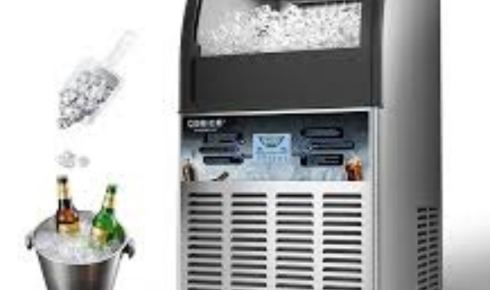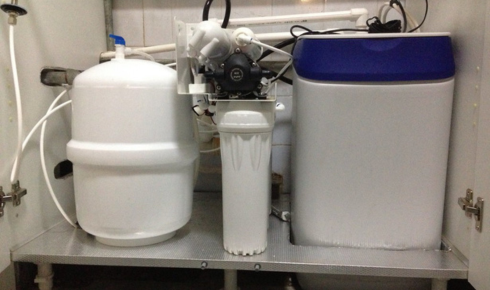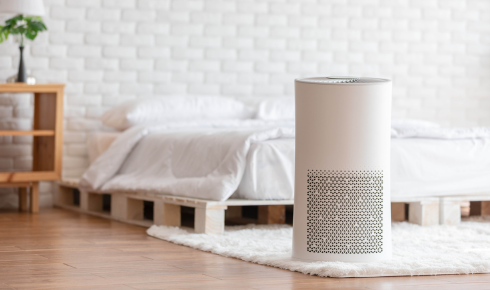There’s something oddly satisfying about the sound of ice tumbling into a glass. It’s that little sparkle of refreshment people don’t consciously think about—but they notice when it’s missing. Cloudy, off-tasting ice can ruin the first impression in a restaurant, bar, café, or even a corporate breakroom. And surprisingly, it’s not always the machine’s fault. It’s the water running through it.
If you’ve ever dealt with a machine producing cloudy cubes, flaky build-up, or that faint chlorine taste—then it’s time to talk about commercial ice machine water filtration. Because no matter how fancy your ice maker is, it’s only as good as the water that feeds it.
The Unseen Culprit Behind Bad Ice
Water is rarely as pure as it looks. Municipal sources often contain chlorine, sediments, minerals, and microscopic impurities. These might be harmless to drink but disastrous for ice production. Unfiltered water builds up scale inside the ice machine, clogging lines, dulling efficiency, and forcing the system to work overtime. That’s how electricity bills climb, repair calls increase, and eventually, the ice cubes come out tasting like the sink.
Now, imagine serving that ice in a customer’s drink. One sip—and your reputation melts faster than the ice itself.
That’s where the quiet hero of the beverage world comes in: a proper filtration system.
Why Businesses Can’t Ignore It
Think of your ice machine as part of your brand experience. Whether you’re running a hotel, bar, or dental clinic—people remember freshness. Ice isn’t just a side note; it’s part of the service. It chills drinks, preserves flavor, and projects cleanliness.
So, skipping filtration is like putting low-grade oil in a high-end car. You’ll get away with it for a while—but eventually, it’ll cost you more in maintenance, energy use, and credibility.
Professional-grade ice machine water filters aren’t just about making ice clear—they’re about protecting equipment. The right filter traps sediments, absorbs chlorine, and blocks mineral deposits before they get a chance to form. That means fewer breakdowns, less downtime, and longer-lasting machines.
How Filtration Actually Improves Ice Quality
Here’s the science part, simplified:
When water flows through a carbon-based or multi-stage filter, chlorine and organic compounds are removed. Then, fine sediment filters catch the smaller particles that cloud up the ice. Finally, scale inhibitors prevent minerals like calcium and magnesium from hardening onto the evaporator plates—the components responsible for freezing water into clean cubes.
The result? Ice that’s crystal-clear, tasteless (in a good way), and consistent in shape and density. In food service, that consistency matters. Clear ice melts slower, preserves drink flavors longer, and looks far more appealing in a glass.
Signs You Need Better Filtration
If you already have a filtration setup but still face issues, it might be time for a replacement—or a better configuration. Watch for:
- Cloudy or soft ice cubes
- Odd taste or odor in drinks
- Slower ice production
- White scaling on machine surfaces
- Unusually frequent service calls
These symptoms usually point to clogged filters or untreated hard water. Regular maintenance is key here; filters don’t last forever. Most manufacturers recommend replacing them every six months, but it really depends on usage and water quality.
The Real Cost of Neglect
It’s tempting to skip filter replacements when everything “seems fine.” But behind the scenes, minerals and scale start building up. Eventually, they choke the machine’s internal systems, reducing ice output and freezing efficiency. Repairs aren’t cheap—neither are customer complaints about “funny-tasting” ice.
And it’s not just about taste. In hospitality and healthcare sectors, ice can carry bacteria if water is left untreated or the system isn’t maintained properly. Clean water isn’t a luxury—it’s a basic expectation.
That’s why investing in reliable water filtration for ice machines isn’t an expense; it’s insurance for your reputation and equipment.
Choosing the Right Filtration System
Not all filters are created equal. A small countertop ice maker at a café needs different protection compared to a large industrial unit at a seafood restaurant. The best systems combine multi-stage filtration—usually sediment, carbon, and scale inhibitors—to ensure water purity from every angle.
When shopping around, look for NSF-certified systems. They’re independently tested for safety and performance, which is crucial in commercial environments. Also, consider flow rate compatibility—installing a small filter on a high-demand machine can restrict water flow and reduce ice output.
A smart move is to consult with a water treatment expert who can test your local water and recommend a system tailored to your needs.
The Maintenance Mindset
Even the best filter won’t help if it’s ignored. Mark your calendar or set reminders for replacements. Keeping a spare cartridge on hand can prevent downtime, especially in peak business seasons.
It’s also wise to schedule regular machine cleanings—filters remove contaminants from water, but biofilm and scale can still accumulate on ice-contact surfaces. Many businesses pair professional cleaning with filter replacement for a full tune-up.
A Small Upgrade with a Big Payoff
If you think about it, ice is one of those things customers never compliment—but instantly notice when it’s bad. Investing in proper filtration ensures they never have to think twice. It keeps your drinks crisp, your equipment running smoothly, and your energy bills reasonable.
In the grand picture of running a business, filtration might seem like a tiny detail—but it’s those details that separate “good enough” from “great.”
Final Thoughts
Clean water equals better ice. Better ice equals happier customers. It’s that simple. Whether you’re running a busy restaurant, a hotel lounge, or an office breakroom, don’t let poor water quality quietly sabotage your efforts.
Choose quality filtration once, maintain it properly, and enjoy peace of mind knowing every cube you serve is as pure as it looks. After all, great ice doesn’t just happen—it’s filtered, crafted, and cared for.



